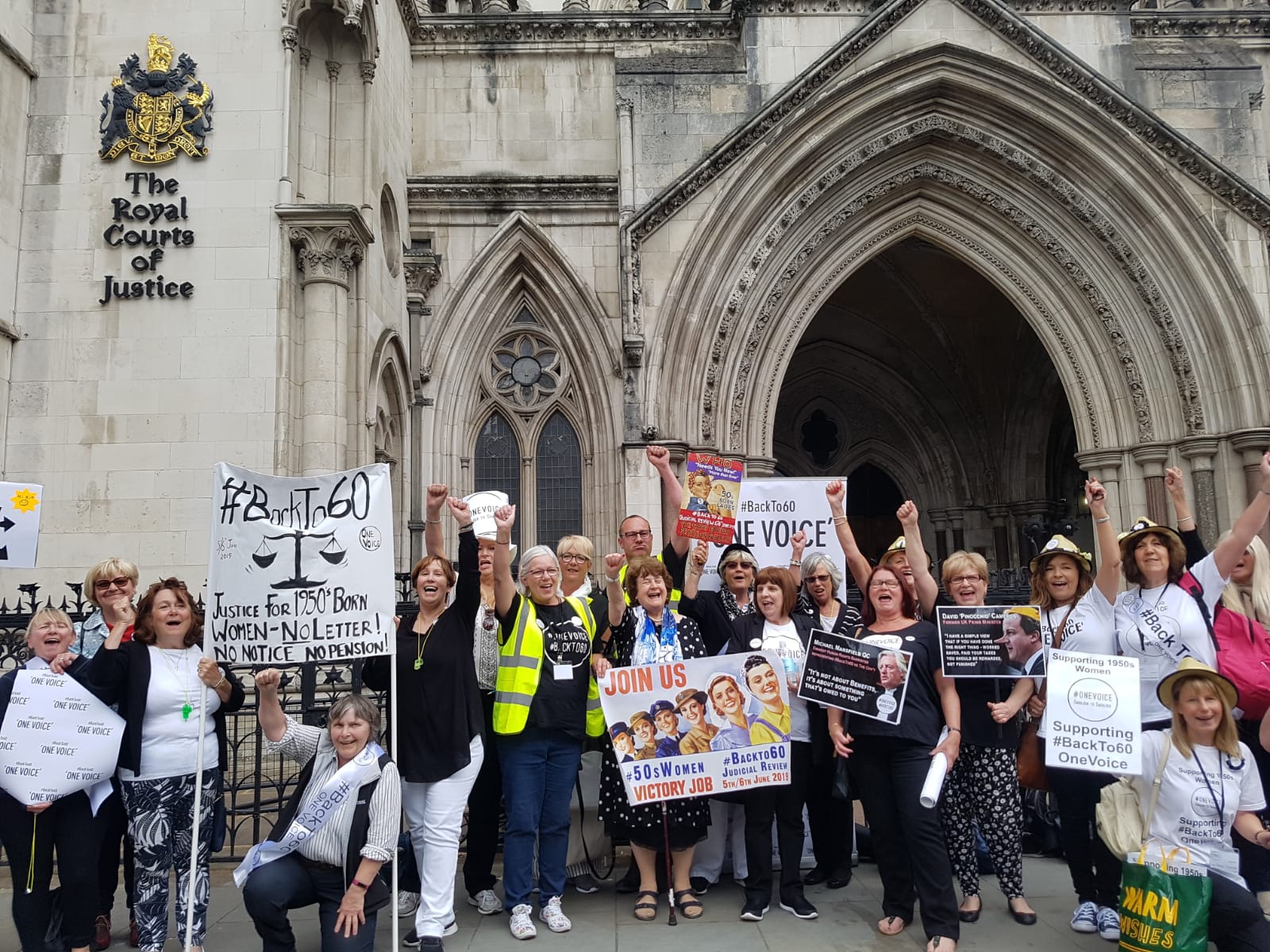As we prepare to welcome 2020, EachOther looks back at the first six months of the past year and highlights some of the biggest stories we reported on.
January
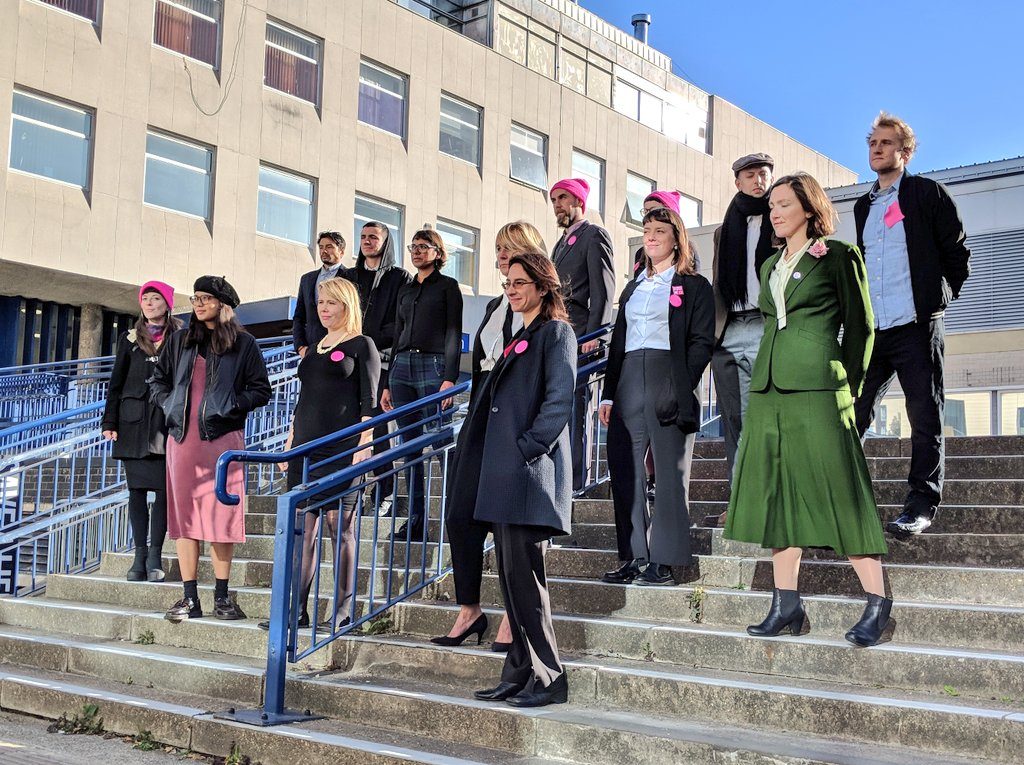
The Stansted 15 trial Crown Court case began on October 1, 2018. They are charged under anti-terror legislation for blocking a deportation flight in March 2017. Image Credit: Sam Walton / Twitter
Fifteen peaceful protesters, who halted a plane at Stansted Airport which was deporting people to Africa, launched an appeal against their convictions in January.
In March 2017, the “Stansted 15” clandestinely entered the airport and four members of the group chained themselves to a plane chartered by the Home Office to remove 60 people held in detention centres from the UK to Nigeria, Ghana and Sierra Leone. They said they believed these immigrants were at risk of serious harm and possible death.
The group was convicted under counter-terror laws in December 2018, but spared jail at a sentencing hearing in February. 12 of them were given community orders and the other three suspended sentences.
Human rights groups maintain that the protesters should never have been brought before the courts. The protesters were granted permission to appeal the conviction in August.
In other news, uncertainty was cast over the future of the Human Rights Act after the House of Lords asked former justice secretary David Gauke to clarify government’s position in relation to it.
The Human Rights Act is a piece of legislation which was passed in 1998 and enshrines our human rights into UK law. A response to the Lords inquiry from a junior minister revealed that the legislation could be reviewed after Brexit negotiations had concluded.
February
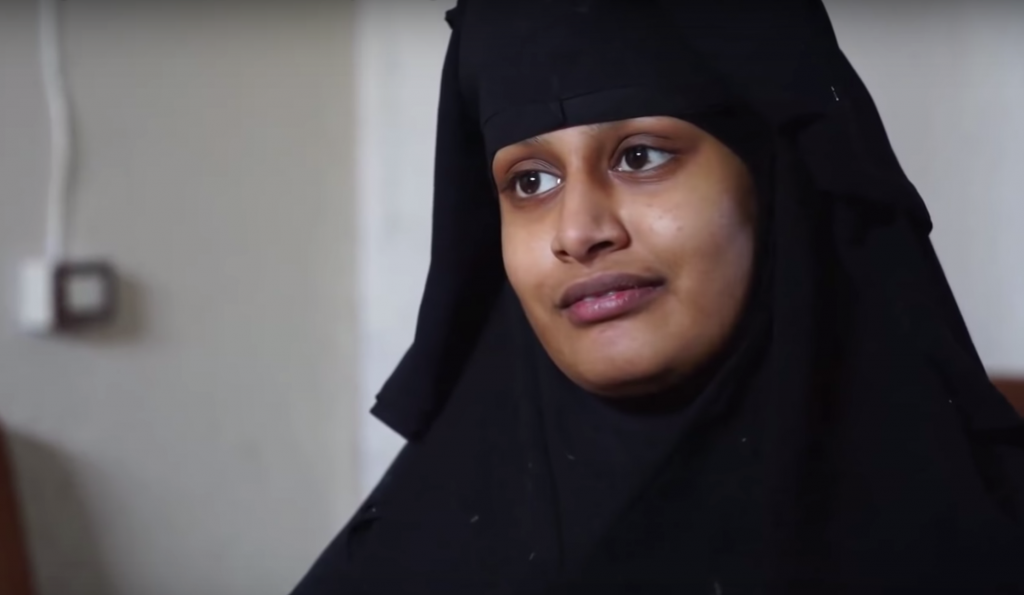
Shamima Begum. Credit: YouTube
The Home Office moved to strip 19-year-old Shamima Begum of her British citizenship after she travelled to Syria in support of Isis.
Begum was only 15 when she was radicalised by Isis militants online and smuggled into Syria. She left her home and family in Bethnal Green, London with two of her school friends, to be married off to a Dutch fighter in the state of Raqqa.
Her story dominated headlines for weeks and gave rise to a number of questions around the human rights impact of making someone stateless – which is a violation of international law – as examined by EachOther.
In other news, a cross-party group of MPs revealed in February that newborns who fail to receive the correct early years care can suffer more complex problems later on in life.
The Health and Social Care Committee‘s report revealed that too many newborns are being failed by the welfare system within the first 1,000 days of birth. Child psychologist Judith Wenban-Smith told EachOther that there is a link between failure of early years care and high levels of exclusion rates at school.
She said: “The best predictor of a child’s performance throughout their education is their starting point. It is madness to cut resources such as health visitors and Sure Start centres. Early disadvantage follows a child throughout their life in terms of underachievement, mental health problems and lifestyle choices.”
March
In March, legal experts and child rights organisations expressed grave concerns that thousands of children of EU nationals may become undocumented immigrants after Brexit.
Already vulnerable youths in the UK could end up suffering the same fate of the Windrush generation in finding out that they do not have the same legal rights as UK citizens when they are threatened with deportation or are unable to access national services.
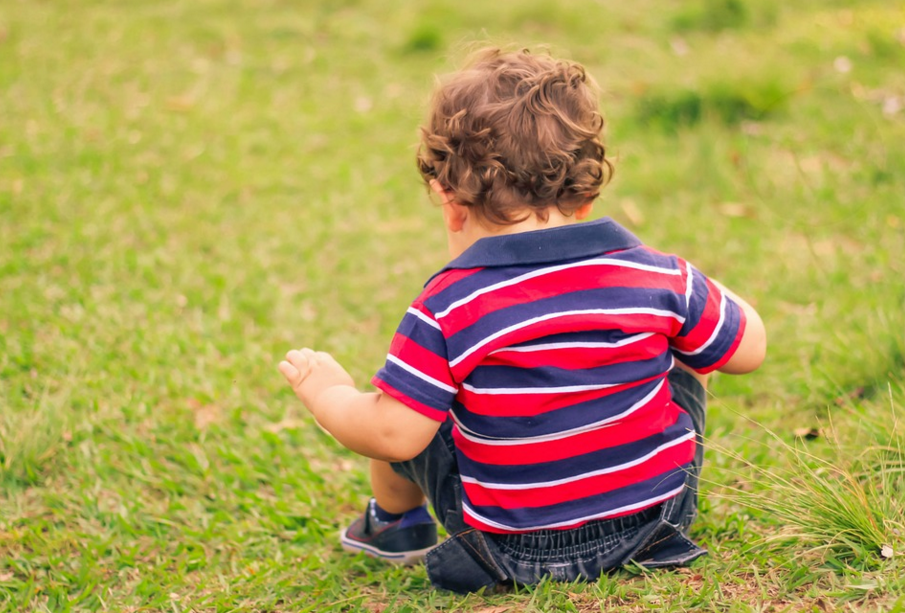
Image Credit: Max Pixel.
There are an estimated 900,000 EU national children in the UK at the moment, with around 285,000 born in Britain. Particularly at risk would be children in care homes, foster care, or in vulnerable families.
Human rights lawyer Sailesh Mehta, of Red Lion Chambers, told EachOther that it was down to the Home Office to prioritise setting up a settlement scheme that actually works.
“With many other Brexit problems on the horizon, this one may quietly fail without the public becoming aware of it until it is too late,” he said.
“This may become another in a long list of Brexit problems which have not been given the attention it deserves.
“As always, it is the innocent who will suffer as a result of political indifference and incompetence. These undocumented children will become unwitting victims of the ‘hostile environment’ that populist Brexit supporters will be pushing with greater vigour in the coming years.”
April
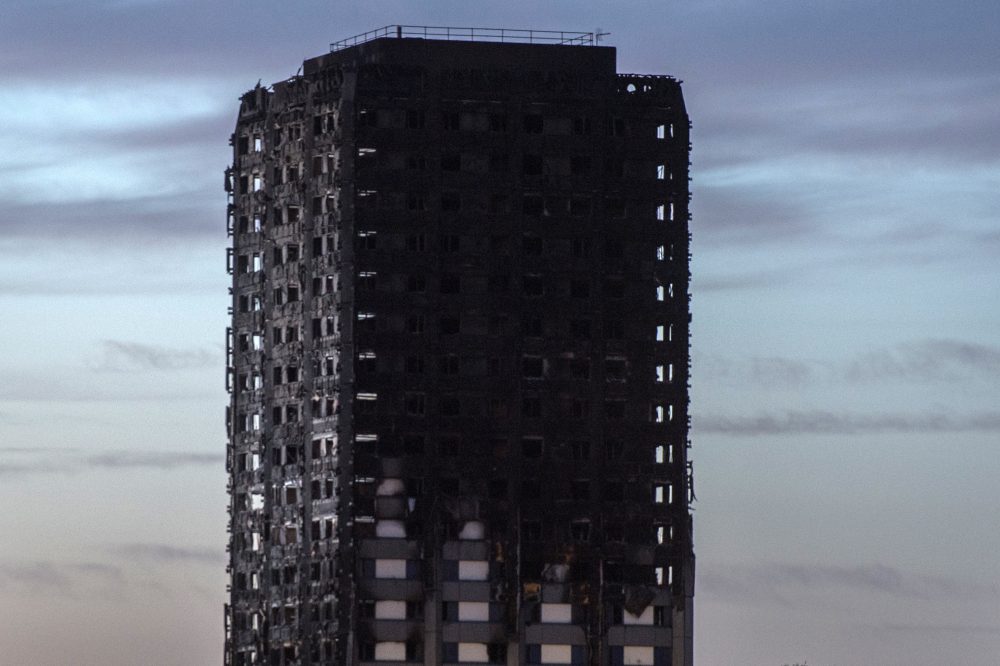
Grenfell Tower: Wasi Daniju | Flickr
More than a year after the Grenfell Tower tragedy, residents spoke out about the enormous emotional and financial toll of living in a block of flats wrapped in the same combustible cladding that made the fire in Kensington so deadly.
Of 196 leaseholders who responded to a snapshot survey, 127 said their mental health had been “hugely affected” as a direct result of living in fear of a fire, and 65 had sought medical help.
Almost all the respondents – nearly 90 percent – said their mental health was worse now than before Grenfell, while 92 percent said they had money worries.
“I worry about to it daily and now am in counselling because of stress and anxiety,” one resident told UK Cladding Action Group (UKCAG), who conduced the survey. “I wake up every night worrying about everything.”
May
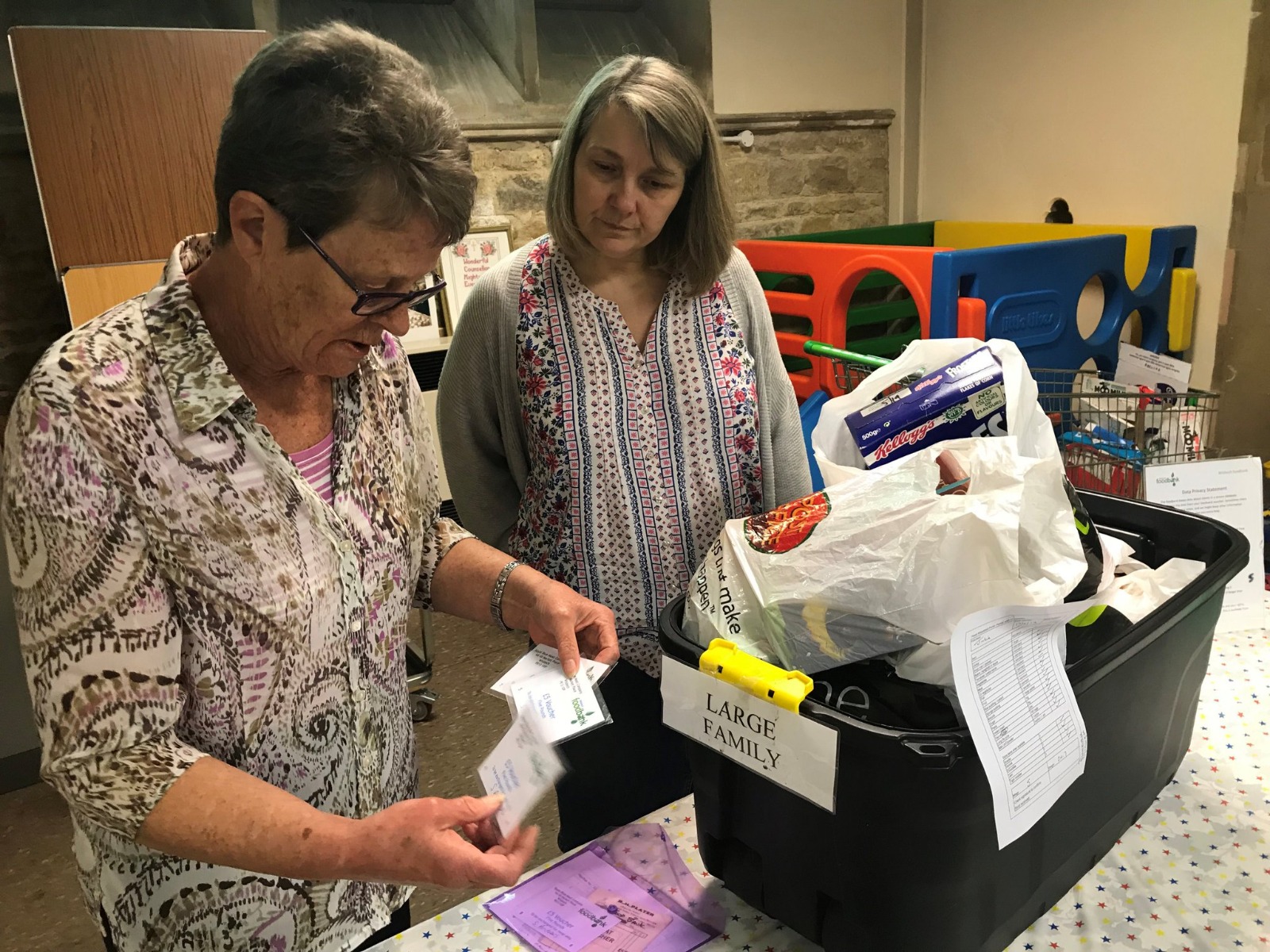
Image Credit: Kartik Raj/Human Rights Watch.
Government welfare cuts left tens of thousands of poor families in England without enough food to eat – breaching their basic human rights, a report released in May found.
Human Rights Watch (HRW) called on the UK government to adopt a number measures to ensure families in England are able to put adequate food on the table.
The 115-page study, called ‘Nothing Left in the Cupboards’, attributed the mass hunger to almost a decade of austerity-motivated cuts to the welfare system, and the roll out of the controversial benefit Universal Credit.
“This rise in hunger has the UK government’s fingerprints all over it,” said Kartik Raj, HRW’s western Europe researcher.
“Standing aside and relying on charities to pick up the pieces of its cruel and harmful policies is unacceptable.
“The UK government needs to take urgent and concerted action to ensure that its poorest residents aren’t forced to go hungry.”
June
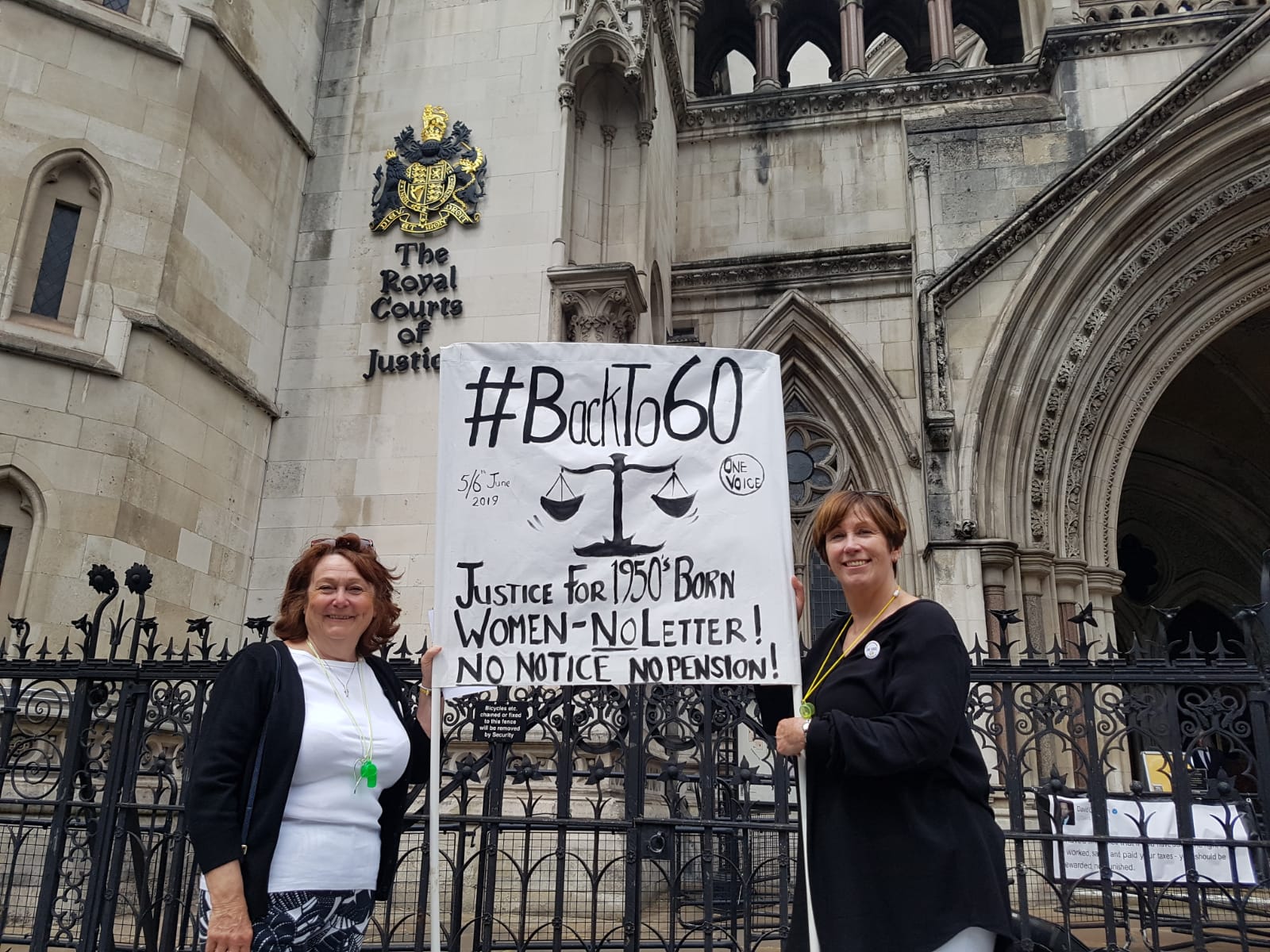
BackTo60 campaigners outside the Royal Courts of Justice in June this year. Credit: Aaron Walawalkar / RightsInfo
In June, the High Court heard a two-day legal challenge against the government’s changes to the state pension age.
The court heard that an estimated 3.8 million women born in the 1950s had lost out on thousands of pounds after the government raised their state pension age to 66 at a faster rate than expected.
It was argued that these women had been unlawfully discriminated on the basis of sex and age.
High Court judges ultimately dismissed the appeal in October, but campaigners have said that will take their case to the Court of Appeal.
In other news, the headteacher of a Birmingham primary school dogged by months of protests over its teaching of same-sex relationships and LGBT issues called on the government and human rights watchdogs to lay out “in no uncertain terms” how schools should uphold equality in lessons.
Anderton Park primary school headteacher Sarah Hewitt-Clarkson warned that guidance for schools is needed to prevent “a lot of damage that can be done” in the time before “welcome” new government legislation comes into effect, making relationships education compulsory from September 2020.
The primary school had endured months of demonstrations from largely Muslim, but also Conservative Christian and Jewish, protesters – who take exception to the schools teaching on same-sex relationships.
“It should make absolutely clear that no group should be left out,” she said.
“There must be, for example, different books. If you’ve only got books with only white characters, then that’s not representative of the world.
“If your art curriculum is only about Van Gogh and Picasso and other white Europeans, it is not a representative curriculum.”
Stay tuned as we take a look at the second half of 2019 on Tuesday (31 December).

